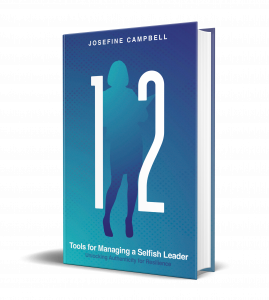
Share this article with others
This article was first published at: lederweb.dk, 07/09/2023. You can access the full danish article here.
Meeting Management: Are you tired of meetings that drain your energy and leave you feeling exhausted? Then, here are five meeting strategies to boost the energy in your next meeting and create a more engaging and rewarding meeting culture. In this article, you can read about:
- Why meeting management is important for boosting your personal energy level and performance
- Five meeting strategies for high personal energy and an effective meeting culture
- What drains personal energy in teams
- What meeting strategies you can apply to increase personal energy and efficiency.
Managing personal energy is important in effective meeting management
Back in 2003, the American author Tony Schwartz introduced the idea that to increase efficiency, leaders should manage energy, not just time and money. With the book came full engagement courses, where leaders learned to meditate, eat healthily, drink enough water, and so on. It was good and important, but today, in a world filled with constant change and uncertainty, it’s no longer enough.
Do you want to read this article in danish? This link will take you there.
We spend most of our waking hours at work, and it’s where energy is either drained or replenished. In my book “Power Barometer, Mange personal energy for business success” you can read about how to boost energy in teams and other collaborative situations.
Humans are social beings who are influenced by each other’s mental states. Stress is contagious. Energy is contagious. That’s why it’s so crucial to focus on it when you spend most of your waking hours working, usually alongside your colleagues. So, when you need to collaborate and perhaps lead others in the best possible way, it requires:
- Working on your own personal energy.
- Being aware of what drains and fuels energy in your work.
- Everyone taking responsibility for the energy level in meetings and/or collaboration.
The energy level in your meeting is crucial for what you can achieve together and how prepared you can be to handle the challenges that arise, whether anticipated or unexpected.
Here’s some inspiration for you.
5 Strategies for high personal energy and an effective meeting culture
When energy is low in a meeting, you can feel it. Energy is one of those things you can’t see, but its effects are palpable. When there is good energy, collaboration is better, work is performed more effectively, and people thrive. When that energy is lacking, there’s a greater risk of misunderstandings, mistakes, and burnout.
Energy is stored in an individual and also flows between us. You can sense it when there’s good chemistry between people – it doesn’t necessarily have to spark, but you know that good energy is present.
Therefore, energy can lift us up or drain us. You’ve probably experienced leaving a meeting feeling completely drained or leading a team that gave you a sense of joy when working together. You may have also experienced not wanting to go to work due to the atmosphere. If your answer is yes to any of these questions, you understand the importance of personal energy and the energy shared within a team.
Would you like the newest knowledge and inspiration sent directly to you?
Then subscribe to our monthly newsletter
What Drains Energy in Teams and Team Meetings
There are several factors that can drain a team’s energy. For example, a difficult colleague can be one such factor. This person can have a negative impact on the entire team’s productivity. Some individuals require more energy to be around than others. Here, maintaining a positive attitude and creating opportunities for laughter is essential. It’s easier said than done, but try to embody it – your positive energy is contagious.
Another example is the hybrid work environment. While the ability to work from home has created many advantages, it also comes with challenges. It’s more challenging to collaborate with difficult colleagues, feel a sense of belonging, and have casual conversations with your team.
Other hybrid work forms can have a negative impact on your personal energy and the team’s energy. For instance, sitting in front of a screen all day with few or no breaks and having too many concrete, task-based conversations without sufficient personal engagement and connection to each other.
How to Increase a Team's Energy in a Meeting
The way you collaborate has a significant impact on both individual and collective energy levels. Work that energizes you is motivating and engaging, while conflicts, setbacks, and disrespectful communication can drain energy. Here are five concrete tips on what you can do, or what your team can do, to raise the energy level in your next meeting:
Get some fresh air. If you have the opportunity, step outside and get some fresh air before starting the meeting. You can either give everyone 10 minutes to go outside, or if you’re all in the same location, you can start the meeting with a walk and a conversation.
Stay active. During short breaks in your workday, make sure to move around. This can include standing up, stretching, or taking a short walk, either individually or as a team.
Meditate. Just seven minutes can be enough. Most people feel refreshed after closing their eyes and turning their attention inward. You can’t force others to meditate, but everyone can appreciate a little time to reflect and take a break. Learn how to meditate here.
Have a good laugh. For most people, a good laugh can be as effective at improving their mood as meditation. Just be mindful not to use sarcasm or any humor that could be offensive and hurtful to others.
Check-in. Start meetings with an energy check-in, where everyone shares how much energy they have. When team members share their energy levels, they connect on a personal level. To keep it simple, you can share your energy level as a percentage or simply say “low,” “medium,” or “high.”
If you follow some of these strategies in your team, you will develop a collective awareness over time of what gives and takes your energy.
Ask yourself and each other: Why is our energy level low? Is what we’re discussing not important? And most importantly, has the meeting been going on for too long?
You can find more information in the books by Josefine Campbell: “Power Barometer” (2023) and “Er du klar eller kapret” (2020), which discuss how to increase energy in collaboration.
I’ll gladly answer any questions, that you might have after reading this article – don’t hesitate to call or sent me an e-mail.
The best of luck with increasing the energy in your meetings.
We help people in multinational companies to handle challenges in a meaningful way and take business to the next level. If you would like to be updated with new articles and videos, sign up for our mailing list. Your mail is not shared with anyone and there are advantages to being on the list e.g., getting a mini course in your personal leadership.












